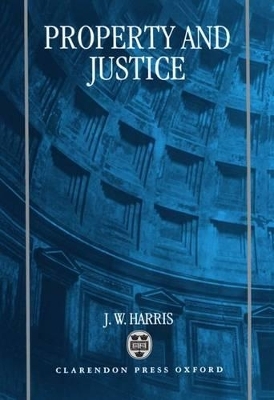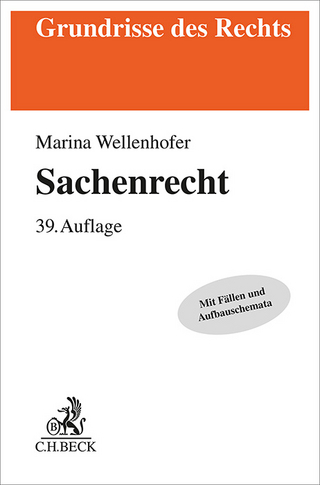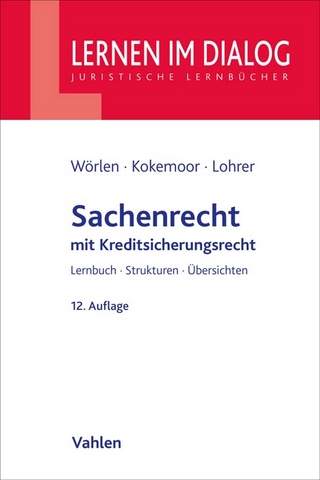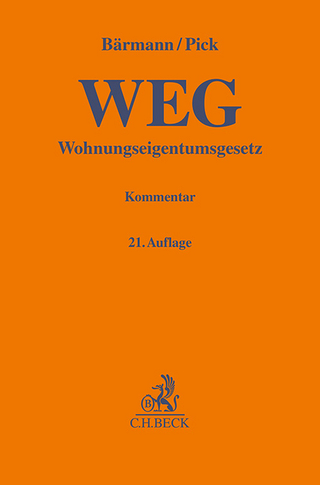
Property and Justice
Seiten
1996
Clarendon Press (Verlag)
978-0-19-825957-2 (ISBN)
Clarendon Press (Verlag)
978-0-19-825957-2 (ISBN)
Property is a legal and social institution governing the use of most things and the allocation of some items of social welfare. As an institution, property is a complex organizing idea. This work examines the legal and philosophical underpinnings of the concept of property and offers an analytical framework for understanding property and justice.
Property is a legal and social institution governing the use of most things and the allocation of some items of social welfare. As an institution, property is a complex organizing idea. Despite its complexity, property, as an organizing idea, is now very old and is now used worldwide. The oldest written records atttest to it. Few primitive peoples, whose societies have been researched by anthropologists, have turned out to lack any conception of it. In the modern world, any normal person will have heard of it, from childhood onwards. In the modern world, the institution of property is everywhere embodied in law. That is to say, the various organs of government deploy it, officially as part of the mechanism for controlling the use of things and as part of the mechanism for supervising or directing the allocation of wealth. This work examines the legal and philosophical underpinnings of the concept of property and offers a new alaytical framework for understanding property and justices.
Bridging the gulf between juristic writing on property and speculations about it appearing in the tradition of western political philosophy, Jim Harris has built from entirely new foundations an analytical framework for understanding the nature of property and its connection with justice. Dr Harris' achievement is a monumental one marrying the subtlety of contemporary political philosophy with the fine detail of technical legislation and difficult litigation in English property law. The result greatly improves our understanding of the philosophical dimension of property and at the same time allows us to stand back from the detail and see the patterns which emerge.
Property is a legal and social institution governing the use of most things and the allocation of some items of social welfare. As an institution, property is a complex organizing idea. Despite its complexity, property, as an organizing idea, is now very old and is now used worldwide. The oldest written records atttest to it. Few primitive peoples, whose societies have been researched by anthropologists, have turned out to lack any conception of it. In the modern world, any normal person will have heard of it, from childhood onwards. In the modern world, the institution of property is everywhere embodied in law. That is to say, the various organs of government deploy it, officially as part of the mechanism for controlling the use of things and as part of the mechanism for supervising or directing the allocation of wealth. This work examines the legal and philosophical underpinnings of the concept of property and offers a new alaytical framework for understanding property and justices.
Bridging the gulf between juristic writing on property and speculations about it appearing in the tradition of western political philosophy, Jim Harris has built from entirely new foundations an analytical framework for understanding the nature of property and its connection with justice. Dr Harris' achievement is a monumental one marrying the subtlety of contemporary political philosophy with the fine detail of technical legislation and difficult litigation in English property law. The result greatly improves our understanding of the philosophical dimension of property and at the same time allows us to stand back from the detail and see the patterns which emerge.
| Erscheint lt. Verlag | 10.10.1996 |
|---|---|
| Verlagsort | Oxford |
| Sprache | englisch |
| Maße | 163 x 243 mm |
| Gewicht | 830 g |
| Themenwelt | Geisteswissenschaften ► Philosophie |
| Recht / Steuern ► Allgemeines / Lexika | |
| Recht / Steuern ► EU / Internationales Recht | |
| Recht / Steuern ► Privatrecht / Bürgerliches Recht ► Sachenrecht | |
| Sozialwissenschaften ► Politik / Verwaltung | |
| ISBN-10 | 0-19-825957-3 / 0198259573 |
| ISBN-13 | 978-0-19-825957-2 / 9780198259572 |
| Zustand | Neuware |
| Haben Sie eine Frage zum Produkt? |
Mehr entdecken
aus dem Bereich
aus dem Bereich
Gesetz über das Wohnungseigentum und das Dauerwohnrecht : Kommentar
Buch | Hardcover (2025)
C.H.Beck (Verlag)
CHF 124,60


